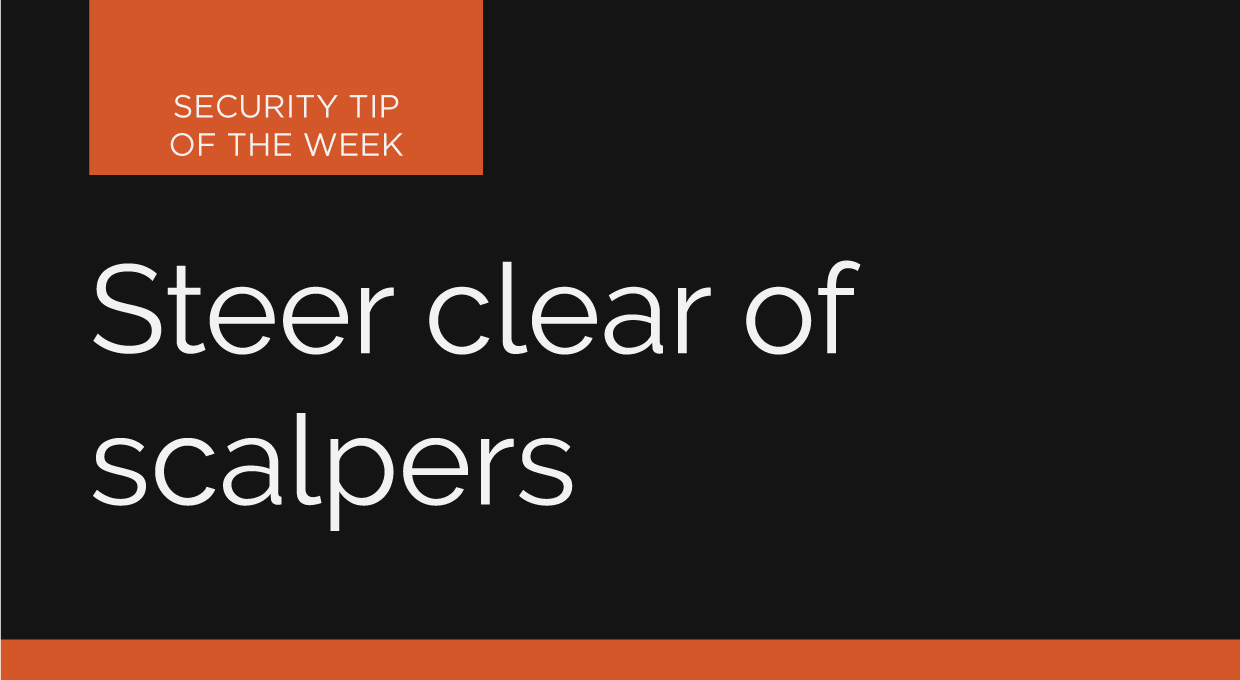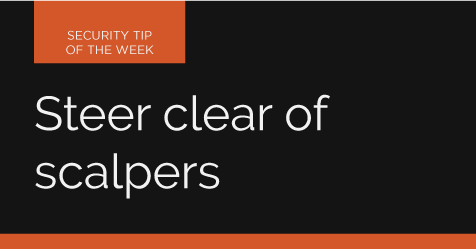Now that you’re wary of online ticket scalpers, here’s how you protect yourself from them.

Being wary of the points outlined in our modus operandi overview on online scalpers should provide you with a firm foundation against being fooled by malicious software and the greedy minds behind them.
- Stick with well-known players. Tickets should be authentic and guaranteed.
- Before clicking on an online vendor’s website, copy-and-paste its address on an online search engine and see what results come up.
- Check vendors’ reputations.
- Check guarantee policies.
- See before you buy. If it isn’t offered online, call the customer service phone number to ask for an emailed scan or photo of the tickets, before you buy, so you can confirm their legitimacy.
- Know the fees. Legitimate online ticket sellers can (and often do) charge service, shipping or other fees. Although they should be disclosed upfront, they may not be revealed until the “checkout” page. So keep tabs on your subtotal throughout the buying process; it can change.
- Buy tickets with a credit card or PayPal account. They offer more protections against unfair or unauthorized charges than do debit card transactions. And never wire money as payment – that’s a sign of a scam.
- Paperless tickets? Read the fine print. Some events sell restricted paperless tickets, where the buyer doesn’t get an actual ticket but instead must present a photo ID and the purchasing credit card to get inside. No problem if you’re buying for yourself, but it could be if you’re giving tickets as a gift, so read the fine print. That’s a good move regardless whenever buying online tickets.
Source: Ace And Associates Risk Management, Inc.






